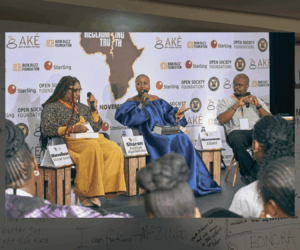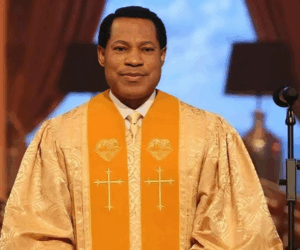
Most young Nigerians believe wills are for the old, wealthy, or terminally ill. But the reality is different. Your smallest possessions, like your savings account, your laptop, your car, or even your furniture, will be distributed by law if you die without a will. And depending on your religion or ethnicity, that distribution may not be what you imagined.
Ayokunmi Alabi, a dispute resolution lawyer, says this belief is widespread but dangerous.
“There is the age-long misconception that writing a will means the person wants to die, and Nigerians, being averse to any negativity, would rather not talk or do anything about the subject because they believe it may even hasten the death. Well, no one lives forever; it’s better to plan for death while still alive.”
So, what happens to your assets if you die without a will? Here’s why Nigeria’s three legal systems divide property, and why even young, single people should start thinking about estate planning.
Why writing a will as a young Nigerian matters
When someone dies without a valid will, lawyers call it “dying intestate.” In Nigeria, this happens often. Without written instructions, family members are left to fight over property, dragging disputes through customary courts, high courts, or even religious tribunals.
Alabi stresses that this is avoidable. “A will basically documents, while still alive, how one would love his properties or possessions to be shared or administered upon death,” he explains. “It protects your heirs, property and loved ones when you are not there.”
Wills aren’t only for the rich or elderly. They’re a legal roadmap to prevent confusion and conflict. And in Nigeria, confusion is almost guaranteed if you die intestate.
What is intestate succession?
Intestate succession means the process of distributing someone’s assets when they die without a valid will. In Nigeria, three different systems govern this process:
-
Statutory law (the administration of estates law) applies mainly to Christians and those married under the Marriage Act.
-
Customary law, rooted in ethnic traditions, varies by tribe (Igbo, Yoruba, Hausa/Fulani).
-
Islamic/Sharia law, for Muslims, is guided by Qur’anic rules and Islamic jurisprudence.
Each system has its own order of inheritance, rules about gender, and treatment of widows, parents, and siblings. That means the same young person’s assets could be divided three completely different ways depending on their background.
Distribution of property under statutory law
Statutory law governs inheritance for people who married under the Marriage Act or who aren’t bound by customary or Islamic law. The Administration of Estates Law lays out who inherits first. Typically, assets go to the spouse and children; if there’s no spouse or children, parents and siblings come next.
Alabi clarifies, “The order of inheritance only comes to play when someone dies intestate (without a will).” In other words, if you leave a valid will, you can give your assets to anyone, provided you also make adequate provision for your dependents.
For young, single people with no children or spouse, statutory law means your parents, and then your siblings, will likely inherit your property. If both parents are dead, siblings are next in line. But a court will have to issue what’s called a “Letter of Administration” before your estate can be managed (more on this below).
Distribution under customary law
Customary law varies across Nigeria’s ethnic groups. For the Igbo, the rule of primogeniture often applies, and inheritance passes to the eldest son. Female children and widows may have limited rights. This can be a shock for modern families.
The Yoruba system, by contrast, has two recognised methods:
-
Idi-igi (“division by tree”): Property is divided by each wife’s “tree.” For example, if a man has four wives, the property is split into four, and each wife’s children take only from their mother’s share.
-
Ori o jori (“division by heads”): All children and wives receive equal shares per head.
Alabi explains these two systems,
“For ‘idi-igi’ where a man has four wives who gave birth to numerous children, the property will be shared just into four… while the ‘ori o jori’ means everything is shared equally amongst the surviving wife and their children per head.”
Among Hausa/Fulani (non-Muslim) communities, traditional practices also tend to favour male heirs, though specifics differ by locality.
For young, unmarried people, customary law often means your assets go back to your extended family, sometimes to uncles or male relatives, depending on the tradition. This can disinherit siblings or female relatives entirely.
Distribution under Islamic/Sharia law
Islamic inheritance is strictly codified. The Qur’an and Islamic law assign fixed fractions to heirs. Sons generally receive twice the share of daughters; widows receive one-eighth (if children exist) or one-quarter (if no children).
Alabi calls it “easy and direct because it has the force of law.” He explains,
When someone dies a practising Muslim, the law is that the deceased’s properties is shared according to the Islamic law of inheritance. The deceased can only bequeath or give out one-third of his properties, while the other two-thirds will be shared Islamically.
If a Muslim dies unmarried with no children, Sharia laws still determine who inherits, usually parents, siblings, and extended family in a specific order. Unlike customary law, there is little flexibility; the shares are Qur’an-based.
What are the consequences of dying without a will in Nigeria?
When you die intestate, you lose control of who gets what. Family disputes are common. Widows and children can be sidelined under some customary systems. Court processes can drag on for years, freezing bank accounts and property. In some cases, your closest dependents might have to sue to claim what they’re entitled to.
Alabi warns, “Having a will avoids certain pitiable eventualities, protects your heirs, property and loved ones when you are not there.”
Letters of Administration and how the estate is managed
If you die without a will, your family can’t just walk into your bank and withdraw your money or sell your property. They need a High Court to issue a “Letter of Administration.”
This legal document appoints one or more administrators to manage your estate, collect assets, pay debts, and distribute property according to the applicable law.
Applying for Letters of Administration involves paperwork, affidavits, sureties, and lists of heirs. Without it, even your immediate family may be locked out of your assets.
Why young people in Nigeria should write a will
You don’t have to be rich to write a will. Alabi says, “The properties don’t have to be valuable to the public, as long as it’s valuable to the testator. You can will your old books, your bookshelf, your wedding suit, or that your old rickety car or your favourite chair or dining set. Anything and everything you own can be willed.”
A will lets you:
-
Decide who gets your assets.
-
Provide for friends, siblings, or charities, not just parents.
-
Avoid lengthy court processes for your loved ones.
And you can change it anytime while alive.








